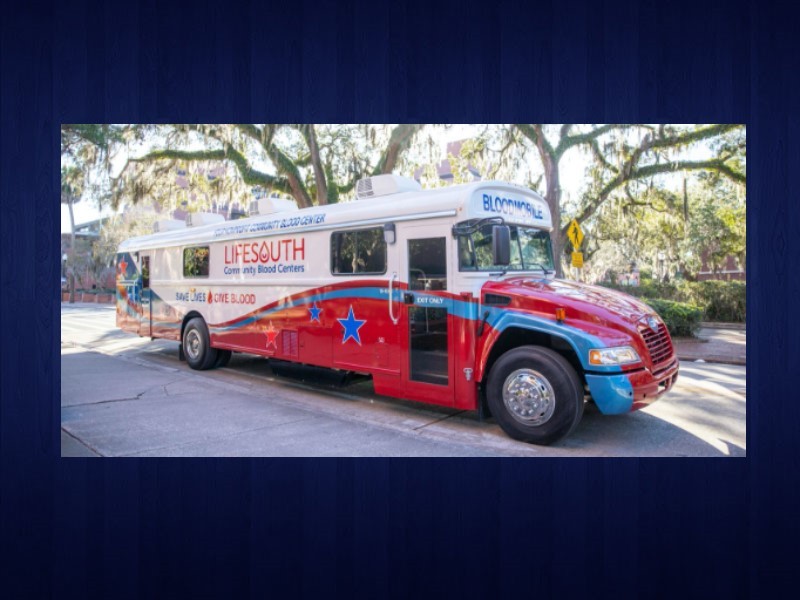Since the COVID-19 pandemic began, there have been countless shortages. However, the country has never had a blood shortage – until now.
The Red Cross said that America is facing its worst shortage in a decade due to COVID-19.
Kyra Harris, district community development coordinator at LifeSouth Community Blood Centers, says that scheduling blood drives has been a challenge during the pandemic.
“A lot of people are not hosting blood drives as they were before, or they can't get their facility to allow us to come in and collect blood,” Harris said. “There's also been an increase in traveling. Basically, this leads to trauma. And so those who don't seek treatment after they travel and they get injured, you know, they wait and then they have to receive elevated care.”
According to Harris, LifeSouth typically had a five to seven day supply of blood. Now, they only have a two-day supply. This forces patients on waiting lists to receive transfusions.
Trauma is not only limited to natural disasters. Accidents are a daily occurence.
“I think people really think of trauma [as] when something big happens, but this is every day you have to think about it,” Harris said. “Like 37% of the population is eligible to donate, but only 10% actually donate. And there's some kind of incident happening each day. People are in the hospital each day, they need this blood.”
LifeSouth officials have visited local schools, churches and businesses to educate the public on the dire need for donations.
“We're trying to create a new generation of donors,” Harris said. “We do have, you know, our current generation, but we also want to keep extending the knowledge to these [new] donors.”
She hopes that donors will also be consistent, ideally giving blood every 56 days. However, even one donation has the power to save multiple lives.
“You're saving three lives,” Harris said. “The way that we take the blood collection, it's split between platelets, plasma and whole blood. So this is going to three different patients, that's incredible.”
LifeSouth’s website has resources for potential donors to enter their zip code and find the nearest donation center. An individual can donate long as they are 17-years-old or older, have a valid photo ID and weigh at least 110 pounds. A phlebotomist is also on-site to determine eligibility.
“A lot of people are not aware of how close we are,” Harris said. “We're at several different Walmart's, we go to Kroger, churches. So it's just about educating where you can donate and who is eligible to donate.”

http://accesswdun.com/article/2022/3/1084782/national-blood-supply-shortage-impacts-hospital-patients
